QUALITY THROUGH NONVIOLENT LEADERSHIP By John Looney
advertisement
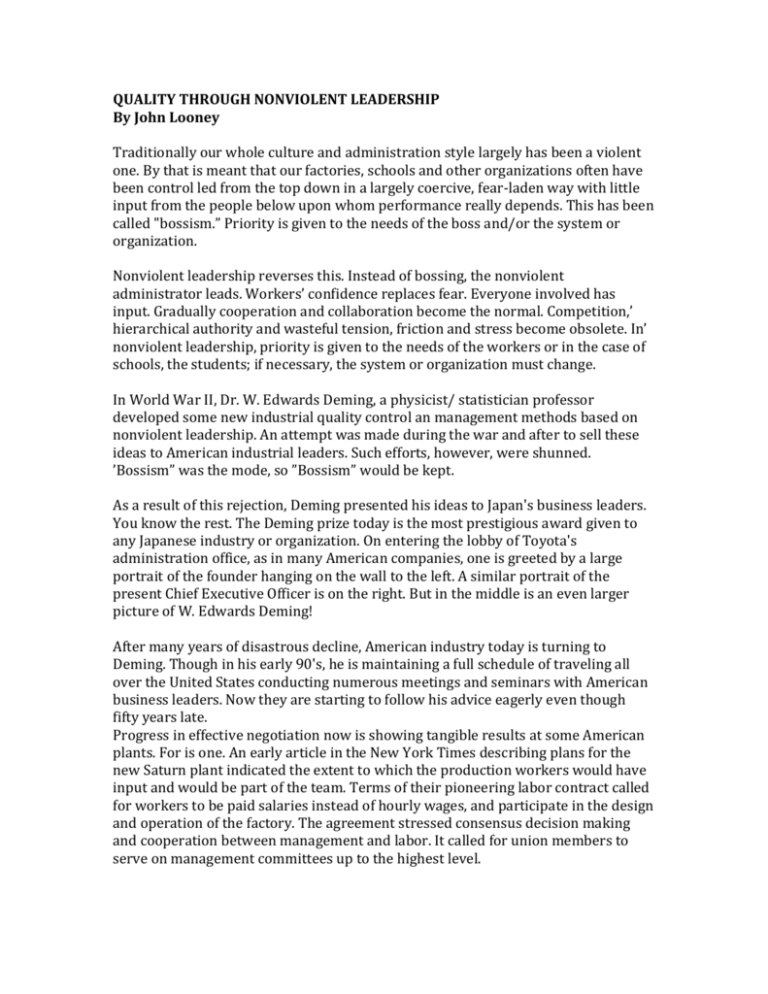
QUALITY THROUGH NONVIOLENT LEADERSHIP By John Looney Traditionally our whole culture and administration style largely has been a violent one. By that is meant that our factories, schools and other organizations often have been control led from the top down in a largely coercive, fear-laden way with little input from the people below upon whom performance really depends. This has been called "bossism.” Priority is given to the needs of the boss and/or the system or organization. Nonviolent leadership reverses this. Instead of bossing, the nonviolent administrator leads. Workers’ confidence replaces fear. Everyone involved has input. Gradually cooperation and collaboration become the normal. Competition,’ hierarchical authority and wasteful tension, friction and stress become obsolete. In’ nonviolent leadership, priority is given to the needs of the workers or in the case of schools, the students; if necessary, the system or organization must change. In World War II, Dr. W. Edwards Deming, a physicist/ statistician professor developed some new industrial quality control an management methods based on nonviolent leadership. An attempt was made during the war and after to sell these ideas to American industrial leaders. Such efforts, however, were shunned. ’Bossism” was the mode, so ”Bossism” would be kept. As a result of this rejection, Deming presented his ideas to Japan's business leaders. You know the rest. The Deming prize today is the most prestigious award given to any Japanese industry or organization. On entering the lobby of Toyota's administration office, as in many American companies, one is greeted by a large portrait of the founder hanging on the wall to the left. A similar portrait of the present Chief Executive Officer is on the right. But in the middle is an even larger picture of W. Edwards Deming! After many years of disastrous decline, American industry today is turning to Deming. Though in his early 90's, he is maintaining a full schedule of traveling all over the United States conducting numerous meetings and seminars with American business leaders. Now they are starting to follow his advice eagerly even though fifty years late. Progress in effective negotiation now is showing tangible results at some American plants. For is one. An early article in the New York Times describing plans for the new Saturn plant indicated the extent to which the production workers would have input and would be part of the team. Terms of their pioneering labor contract called for workers to be paid salaries instead of hourly wages, and participate in the design and operation of the factory. The agreement stressed consensus decision making and cooperation between management and labor. It called for union members to serve on management committees up to the highest level. Learning of Deming’s outstanding accomplishments in industry, William Glasser, the psychiatrist author of Reality Therapy asked himself a question: the Deming methods work for factories, why not for schools?" The Quality School, Managing Students Without Coercion by William Glasser, published in by Harper & Row, essentially contends that as long as administrators think only of their own needs, such as raising test scores, lowering drop out rates, maintaining a good image in the community to get school levies passed, and do not address the nee s 0 students, they never will achieve quality schools. What needs of students are we talking about? The human needs we discussed in Session 3 are condensed to five: 1. Survival 2. Love 3. Power 4. Freedom and 5. Fun The growth of social ills in our country through recent decades has denied these five basic needs to many students. With their very survival threatened and love denied at home and in school, with power nil, freedom declining and with wholesome fun and personal satisfaction sparse, it is pretty difficult for them to absorb classroom learning. Everyone wants a quick fix but, in this writer’s view, there is no quick fix. Nonviolence, however, is starting to head things in a much more hopeful direction. As man join the effort, progress can escalate rapidly. Also, greater quality of life and growth of self esteem leads to fuller functioning, empowerment and self actualization. These are very strong preventatives of alcohol and drug abuse.
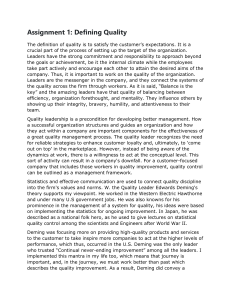
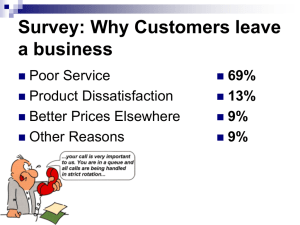
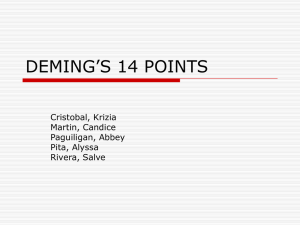
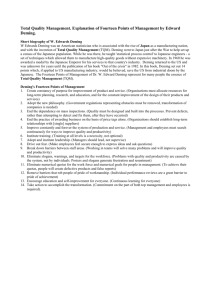
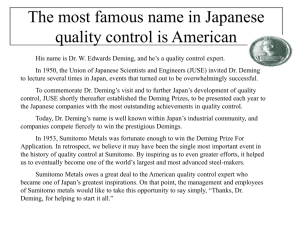
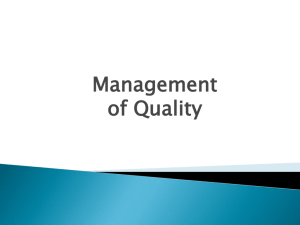
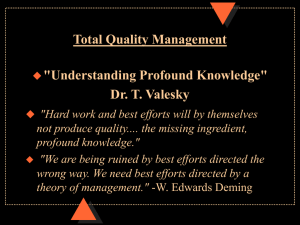

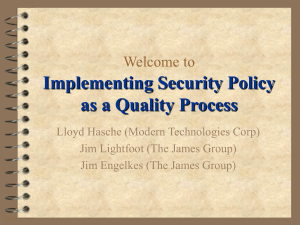

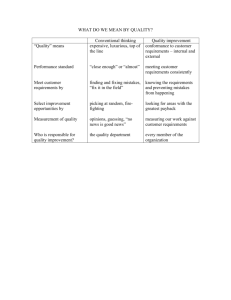
![DemingPrizeTrainingSlides[1]](http://s2.studylib.net/store/data/015258134_1-e8c72eafb4a606b03f67f90e435f9ff9-300x300.png)